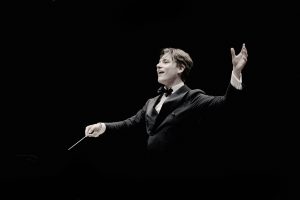
By Márcio Bezerra
After the once-in-a lifetime appearance of the legendary Vienna Philharmonic last season, the Classical Concert Series at the Kravis Center for the Performing Arts scored another point by securing the no less prestigious Royal Concertgebouw Orchestra from Amsterdam to open the current one.
Led by the celebrity conductor Klaus Mäkelä, the ensemble has achieved acclaim for its readings of the Central European repertoire, especially the symphonies by Mahler and Bruckner, none of which were featured at the program. It was a missed opportunity.
The all-Russian evening started with Mikhail Glinka’s Overture from Ruslan and Ludmila; his second opera, written between 1837 and 1842. In the West, the opera is virtually unknown, although the overture played Tuesday appears in programs here and there as an opening number.
It is easy to understand why the overture has survived, as it is brilliantly written, highlighting all sections of the orchestra. Mäkelä and his band gave it a most exceptional reading. The clarity and accuracy of the passagework in the string section was nothing short of miraculous, and woodwinds played with elegant phrasing. A true showstopper.
There was more musical substance in the next selection, the Violin Concerto No. 2 (in G minor, Op. 63) by Sergey Prokofiev. Written in 1935, it is one of his last works written before his permanent return to the Soviet Union. As such, it more intricately conceived, shying away from the easy effects the composer would employ after his conversion to the cause.
Violinist Lisa Batiashvili joined the Concertgebouw for a virtuosic rendition that made a strong case for this less well-known concerto. Her flawless intonation, energetic rhythmic drive, and solid technique found worthy partners among the orchestra musicians.
Mäkelä’s direction was highly expressive, but also technically clean. His gestures ensured a clarity that it is remarkable for such large ensemble.
The second part consisted of Sergey Rachmaninoff’s Symphony No. 2 (in E minor, Op. 27). One of the most performed works by visiting ensembles at the Kravis Center, it was disappointing to hear one of the world’s greatest orchestras spend one hour with a work that, with all due respect to its admirers, is truly epigonic in more than one aspect.
Surely, the Royal Concertgebouw inundated Dreyfoos Hall with the lushest sounds ever heard. Furthermore, there is no question that Mäkelä has great affinity to the work, although the nostalgic element, so characteristic of renditions by Russian orchestras, was absent in his reading. But, why not Mahler, Bruckner, Brahms?
Still, the musicians deserved the usual “standing/walking” ovation received, which they obliged with a short encore, the Gopak from the opera The Fair at Sorochynsti by Modest Mussorgsky. One can only dream of an unlikely return of the august orchestra with a more satisfying program in the near future.